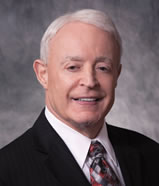 By Corky Goldstein. Senior Counsel, Mooney & Associates
By Corky Goldstein. Senior Counsel, Mooney & Associates
In our legal system in America, everybody has the right to counsel and the right to defend oneself, if charged with a crime, but what about those individuals that are never charged but their names are listed as “unindicted co-conspirators” in a Grand Jury Indictment? They have no way to defend themselves and their reputation. If you are named as an unindicted co-conspirator in a Grand Jury Indictment, an individual does not have any recourse, rebuttal, or rights to defend oneself.
The term “unindicted co-conspirator” started back in 1974 when President Richard Nixon was named as an “unindicted co-conspirator” during the Watergate investigation. An unindicted co-conspirator can be either a person or entity that is alleged in an indictment to have engaged in a conspiracy, but, for many reasons, is not charged in the indictment. The presiding Judge of the Grand Jury must then agree that a particular individual qualifies by finding that his or her statements or acts were in furtherance of the conspiracy. From there, the unindicted co-conspirator’s statements may be admitted into evidence if the prosecution can prove that the person making the statement was a member of the alleged conspiracy, however, this is very rare.
Unfortunately, many people see absolutely no difference between an unindicted co-conspirator and one who is actually indicted. While a case may have several indictments, anyone can be merely accused of conspiracy, and naming of an individual in America today, unfortunately, is almost as damaging as an “actual” indictment. Even the United States Attorney’s Manual recommends against specifically naming any individuals as “unindicted co-conspirators,” however, the use is not prohibited by any law or policy.
Some individuals are named because they have cooperated, and will continue to cooperate, with the Government or have been granted immunity because of their prior testimony. This is a huge advantage to the prosecution’s strategy as conspiracy trials often include testimony by unindicted co-conspirators to assure a conviction much like in United States v. Jackson, where testimony from unindicted co-conspirators led to a conviction of a pair of drug smugglers; or Giglio v. United States where the prosecution agreed not to indict a co-conspirator in exchange for his testimony in a highly publicized forged money order plot. However, even in these circumstances, naming the unindicted co-conspirators can lead to irreparable damage to a person’s character, which results in unintended negative consequences, in that named individual’s personal and professional life, and that person has no recourse to clear their name. The heavy burden of the stigma of GUILT is placed on someone that was never charged, but may have been pivotal in securing the conviction of the individual(s) charged with the serious crimes. This is certainly not fair to the unindicted co-conspirator and puts that individual at risk of physical harm.
The debate over naming unindicted co-conspirators is not a new one. In 1977, The American Bar Association’s Criminal Justice Section Committee proposed six rules to reform Grand Juries, one of which specifically included eliminating the naming of any unindicted co-conspirators in a Grand Jury Indictment, however, nothing has changed.
Today there is little to no effort placed into any type of reform of this unfair practice, however, the increase of high-profile cases may lead to much-needed changes of Grand Jury reform proposals, as, I certainly believe, everyone in our Country must be afforded due process of law.


